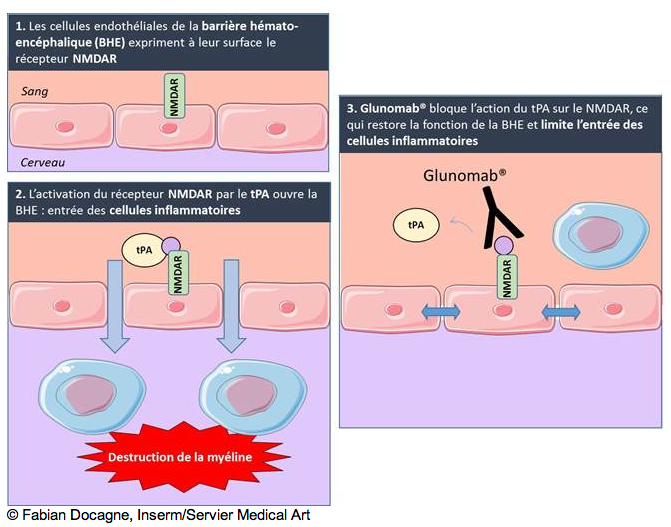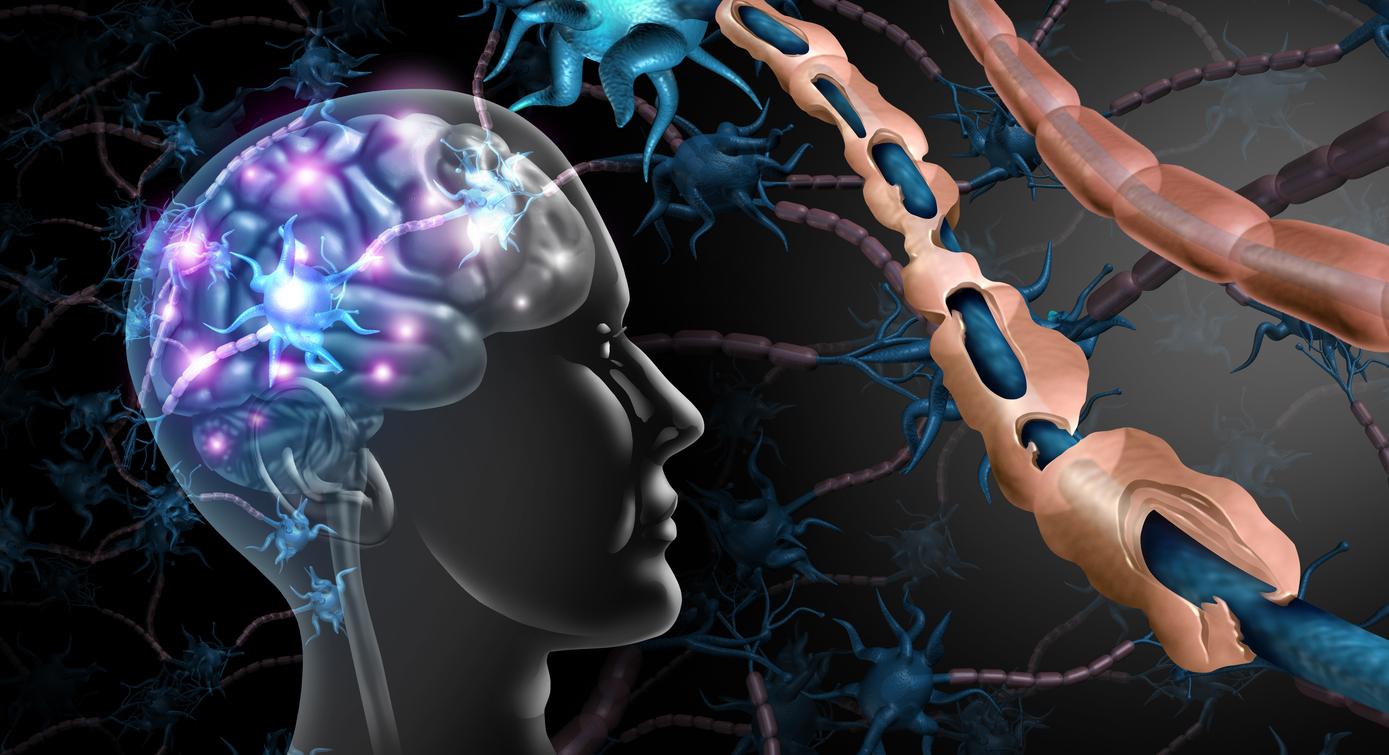A single injection of an antibody is able to slow the progression of motor disorders in multiple sclerosis. A test in mice, led by Inserm, has shown this.

An antibody drug has been shown to reduce the neurological signs of multiple sclerosis in mice. This study, led by Inserm, and published in the journal Brain, offers a promising avenue to fight against this autoimmune disease.
Multiple sclerosis (MS) is a pathology in which the immune system turns against the body, in particular against the nervous system. “Lymphocytes (a type of white blood cell, editor’s note) circulating in the blood attack the brain and spinal cord by destroying the myelin sheaths that surround and protect neurons, which will lead to motor disorders in patients ”, explains to Why actor Fabian Docagne, researcher at Inserm at the Cyceron Center (Caen) and responsible for this recent work. Gradually, patients lose the use of their limbs, have vision and balance problems.
In recent years, the therapeutic arsenal has therefore been expanded with drugs targeting the immune system. Effective DMARDs that reduce the frequency of inflammatory attacks characteristic of MS and slow the progression of the disease. But their effectiveness comes at a price. “By acting on the immune system, these treatments carry a significant risk of infections. Patients cannot take them in the long term ”, underlines Dr. Pierre-Olivier Couraud, vice-president of the medico-scientific committee of the foundation for aid in research on multiple sclerosis (ARSEP) which funded partly the work of Fabian Docagne.
Pierre-Olivier Couraud, vice-president of the medico-scientific committee of ARSEP: ” This antibody blocks the infiltration of immune cells into the brain by acting on the protein present on the wall of the brain vessels. It therefore acts without affecting the immune system. “

Maintain the tightness of the blood-brain barrier
To reach the brain and spinal cord, lymphocytes must cross the blood-brain barrier (also called the blood-brain barrier) and the blood-bone marrow (blood-medullary) barrier formed by blood vessels. The researchers therefore attempted to develop a molecule capable of blocking the passage of cells through this barrier by strengthening its seal, without affecting the immune system.
Thus, the scientists were interested in an actor participating in the opening of the blood-brain barrier: the NMDA receptor. In particular, they observed that blocking the interaction between this receptor and a molecule called tPA made it possible to maintain the integrity of the barrier.
The team then developed a strategy to prevent this interaction between these two proteins. They have developed a monoclonal antibody, Glunomab, directed against the NMDA receptor (see diagram below). A technique that has proven effective in the laboratory: the antibody prevents the opening of the blood-brain barrier.

Slow down the progression of the disease
Subsequently, the researchers evaluated these therapeutic effects in mice with motor disorders similar to those of multiple sclerosis. “The animals in the control group – which received a different antibody – progressed to paralysis preventing them from walking, while the mice treated with an injection of Glunomab were still able to walk at the end of the experiment” , explains Fabian Docagne. Autopsies of the guinea pigs also revealed a decrease in lymphocyte infiltration into the brain, and reduced demyelination.
Fabian Docagne, researcher at Inserm at the Cyceron Center (Caen) and work manager: ” There is a key and lock system on the surface of the vessel walls that allows cells to enter the tissue or not. “
“The antibody you have developed has shown great efficacy in mice and no side effects have been observed. As a result, we hope that it will become a treatment in humans ”, rejoices the work manager.
But before this strategy becomes a therapeutic option, the Inserm team will continue this work in mice and other animal models. She will investigate whether this antibody can slow the progressive forms of MS. Those which are the most severe.
In France, around 80,000 people suffer from this autoimmune disease which preferentially affects young adults between the ages of 20 and 40. More than 70% of the sick are women. Multiple sclerosis is the leading cause of severe disability of non-traumatic origin in those in their thirties.
.















